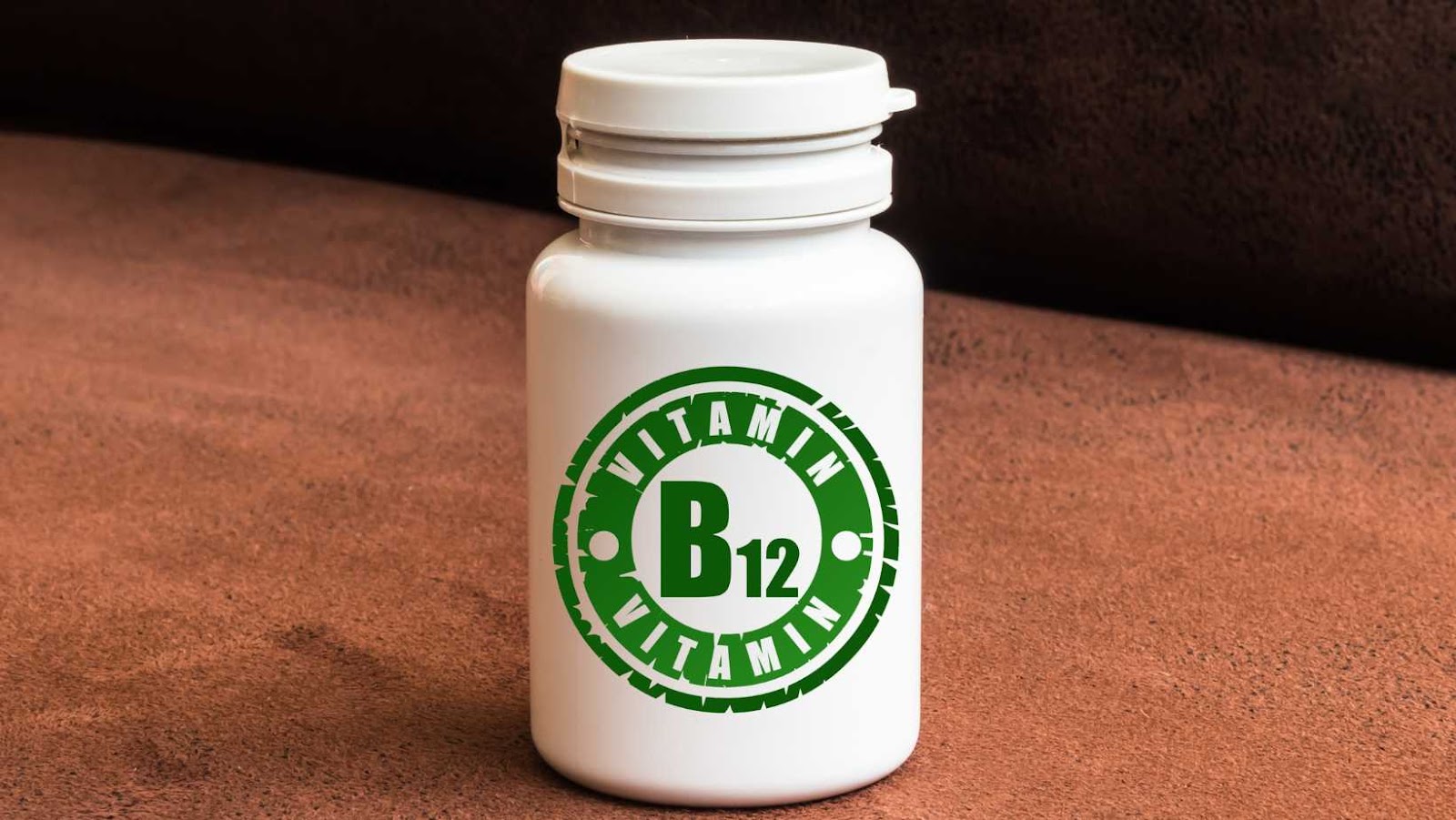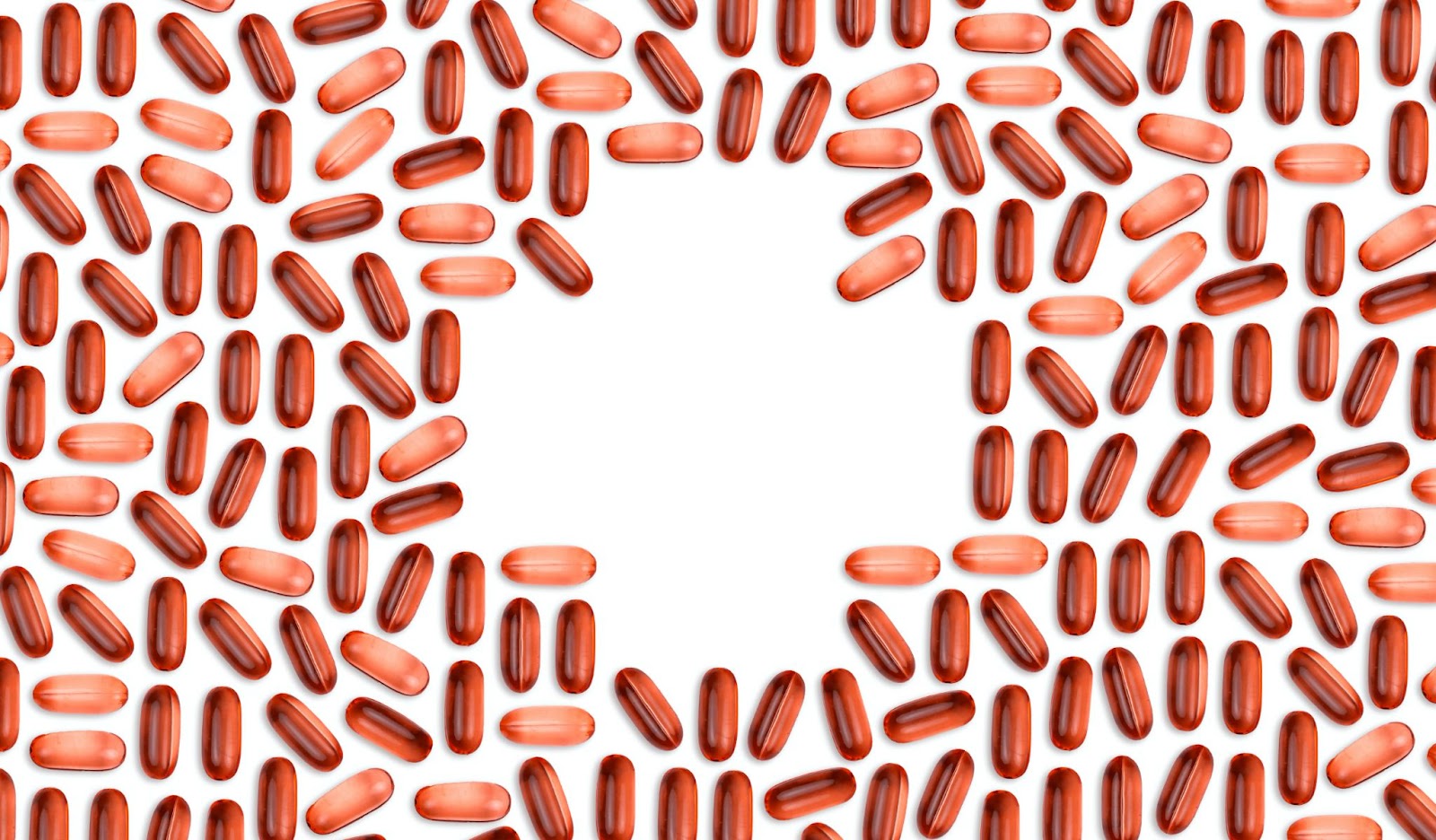Yes, there are other risks associated with taking too much vitamin B12. While vitamin B12 is generally safe to take, excessive doses can lead to several complications.
Here are some risks associated with taking too much vitamin B12:
|
Risk |
Description |
|
Skin rash |
Taking high doses of vitamin B12 can cause a skin rash that may be itchy and uncomfortable. |
|
Acne |
Excessive intake of vitamin B12 can trigger acne breakouts in some people. |
|
Headache |
Overconsumption of vitamin B12 may lead to headaches and migraines. |
|
Diarrhea |
Taking excessive amounts of vitamin B12 supplements can cause digestive issues such as diarrhea and upset stomach. |
It is important to follow the recommended dosage of vitamin B12 to avoid these risks and the potential for other adverse effects. Pro Tip: If you are experiencing any of these symptoms, consult your doctor before taking any further doses of vitamin B12.
What Happens if You Take Too Much B12
Taking too much Vitamin B12 can cause a range of side effects and potential health risks, including increased risk of heart disease, stroke and cancer. It can also cause nerve-related problems, anemia, and kidney damage.
In this article, we will discuss in detail the potential risks associated with taking too much Vitamin B12.
Effects of Butylhydroxytoluene (BHT) on Vitamin B12 Absorption
Butylhydroxytoluene (BHT) is an antioxidant commonly used in food and supplements to increase their shelf life. While there is no direct evidence that BHT affects vitamin B12 absorption, studies have shown that BHT can interfere with other vitamins and minerals when taken in high doses. Taking too much vitamin B12 can lead to several side effects such as nausea, vomiting, diarrhea, and skin rashes. However, there are no known risks associated with taking vitamin B12 in recommended doses. It is important to note that excessive intake of any nutrient may lead to adverse effects on the body. It is always best to consult with a healthcare professional before supplementing with vitamin B12 or any other nutrient to ensure that you are taking a safe and effective amount for your individual needs.
Pro tip: To increase vitamin B12 absorption, pair it with foods that are high in other B-vitamins, such as whole grains and leafy greens.
Increased Cancer Risk With Excess Vitamin B12 Intake
While Vitamin B12 is an essential nutrient for our bodies, with various health benefits, excessive intake of the vitamin can lead to potential health risks, including an increased risk of cancer.
According to a recent study, those who take high doses of vitamin B12 supplements had a higher risk of developing lung cancer, which is a concerning finding, as many people take B12 supplements regularly. While most people can safely consume high levels of vitamin B12 without any adverse effects, excessive intake can lead to other side effects, such as acne, digestive distress, and nerve damage.
To prevent these risks, it’s essential to consult with a healthcare professional to find the right dosage for your body and to avoid taking high doses of B12 supplements unnecessarily.
Pro tip: Consuming foods high in natural B12 is better than supplements. For example – fortified cereals, plant milk, mushrooms, and nutritional yeast.

Risk of Arterial Calcification With High Vitamin B12 Intake
There is a risk of arterial calcification with high vitamin B12 intake, along with other potential concerns associated with excessive vitamin B12 consumption.
Vitamin B12 is essential for many bodily functions, including DNA synthesis and red blood cell production. However, consuming too much vitamin B12 can lead to several health risks.
One of the most significant dangers of excessive vitamin B12 intake is arterial calcification, which occurs when calcium accumulates in the artery walls and restricts blood flow, increasing the risk of heart disease and stroke. Additionally, consuming high doses of vitamin B12 can cause digestive issues, such as diarrhea, and interfere with certain medications, such as antibiotics and blood thinners.
It’s crucial to follow the recommended daily allowance of vitamin B12 and speak with a healthcare provider before taking any supplements. Pro Tip: Eating a balanced, nutritious diet can provide adequate vitamin B12 without the risks associated with supplements.
Monitoring Vitamin B12 Intake
Vitamin B12 is an essential vitamin that plays an important role in many bodily functions. Taking too much vitamin B12 can lead to potential side effects and health risks. It is important to monitor your intake of vitamin B12 to ensure that you do not experience any of these risks.
In this article, we will explore what can happen if you take too much vitamin B12 and other potential risks associated with excessive intake.
Understand Your Daily Vitamin B12 Requirements
Vitamin B12 is an essential nutrient that helps maintain healthy nerve cells, produce red blood cells, and convert food into energy.
|
Age |
Daily Requirements (mcg) |
|
Infants and children up to 6 months |
0.4 |
|
Children 7 months to 12 years |
0.9-1.8 |
|
Teenagers and adults |
2.4 |
While there are no significant risks associated with taking too much vitamin B12, high doses may cause symptoms such as dizziness, nausea, and headache. It’s essential to monitor your vitamin B12 intake and consult with a healthcare professional before taking any supplements. Pro tip: Include vitamin B12-rich foods like eggs, milk, poultry, and fish in your diet to meet your daily requirements.
Use Reliable Sources of Vitamin B12
Vitamin B12 is an essential nutrient needed for proper functioning of the nervous system and red blood cell production. Individuals with vitamin B12 deficiency are at risk of developing various health complications. Reliable sources of vitamin B12 include meat, dairy products, and eggs. However, individuals following a vegetarian or vegan diet may need to rely on fortified foods or supplements to meet their daily B12 requirements. While there are no known risks associated with consuming too much B12 from food sources or supplements, excessive intake of B12 supplements may lead to certain side effects such as diarrhea, nausea, and skin rash. It is important to monitor B12 intake and consult a healthcare professional if you experience any adverse effects or have concerns about your B12 levels.
Pro tip: If you are at risk of B12 deficiency, consider regular blood tests to monitor your levels and adjust your dietary or supplement intake accordingly.
RDA Levels of Vitamin B12 For Daily Intake
The recommended daily allowance (RDA) of vitamin B12 for adults is 2.4 micrograms (mcg). However, the RDA can vary based on age, gender, and other factors. For example, pregnant and breastfeeding women may require higher levels of vitamin B12.
In terms of risks associated with taking too much vitamin B12, there are generally no harmful effects. Vitamin B12 is a water-soluble vitamin, which means that the body can easily excrete any excess through urine.
However, taking large doses of vitamin B12 supplements can interfere with the absorption of other B vitamins in the body. This is because the absorption of B12 is complex and requires other B vitamins to be present in the body.
Additionally, high doses of vitamin B12 can lead to false laboratory results by masking a vitamin B12 deficiency. It is always recommended to consult with a healthcare professional before starting any vitamin B12 supplement regimen.
Best Practices For Vitamin B12 Supplementation
Vitamin B12 is an essential vitamin, and taking a supplement can provide numerous health benefits. However, it is important to remember that taking too much of any vitamin can be detrimental to your health. In this section, we will discuss the best practices for taking Vitamin B12 supplementation and any risks associated with taking too much of it.
Dosage And Frequency of Vitamin B12 Supplements
The recommended daily dosage of Vitamin B12 supplements is 2.4 mcg for adults, and the frequency of supplementation varies based on individual needs.
Here are some factors to consider when determining the frequency of Vitamin B12 supplementation:
|
Age |
Older adults may have difficulty absorbing Vitamin B12 and may require higher doses or more frequent supplementation. |
|
Diet |
Vegans and vegetarians may need to supplement their diets with Vitamin B12, as it is primarily found in animal products. |
|
Medical conditions |
Individuals with gastrointestinal disorders or who have had weight loss surgery may also require more frequent Vitamin B12 supplementation. |
While there are no known risks associated with taking too much Vitamin B12, it can be harmful to individuals with certain medical conditions, such as Leber’s disease.
Pro Tip: Always consult with a healthcare provider before starting any new supplement regimen to determine the appropriate dosage and frequency for your individual needs.

Avoid Exceeding The Safe Upper Limit of Vitamin B12
Vitamin B12 is an essential nutrient that plays a vital role in many bodily functions. However, it is important to avoid exceeding the safe upper limit of Vitamin B12 to prevent any adverse health effects. The recommended daily intake of Vitamin B12 is 2.4mcg for adults. However, supplementation is often necessary for individuals with a Vitamin B12 deficiency or those following a vegan or vegetarian diet. When supplementing with Vitamin B12, it is essential to follow the recommended dosage guidelines and monitor your intake to avoid exceeding the safe upper limit of 2000mcg per day. Excessive Vitamin B12 intake can cause adverse health effects, including acne, nausea, and liver damage.
Pro tip: Before supplementing with Vitamin B12, it is best to consult with a healthcare professional to determine your optimal dosage and ensure that Vitamin B12 supplementation is right for you.
Know When to Seek Professional Help
While Vitamin B12 supplementation can be beneficial, it’s important to know when to seek professional help to avoid any potential risks associated with excessive intake.
Here are some best practices for Vitamin B12 supplementation:
|
Determine if you have a deficiency by getting tested for Vitamin B12 levels. |
|
Follow the recommended daily intake guidelines, which can vary by age and sex. |
|
Choose a reputable brand of supplements and read labels carefully. |
|
Talk to your healthcare provider if you are taking medication or have a pre-existing medical condition. |
|
Watch for symptoms of excessive intake such as acne, rosacea, and diarrhea. |
|
If you experience any of these symptoms or are unsure about the appropriate dosage, seek advice from a qualified healthcare professional. |
Pro tip: Always remember to choose the right dose of Vitamin B12 to reduce the risk of toxicity.
Conclusion
While there are multiple health benefits of taking Vitamin B12, it is important to take it in moderation. Taking too much B12 can lead to an imbalance in the body, resulting in a variety of side effects and health risks.
In this article, we’ll discuss the potential risks associated with taking too much Vitamin B12.
Summary of The Risks Associated With Taking Too Much Vitamin B12
Taking too much Vitamin B12 can lead to certain side effects and health risks. While the vitamin is essential for healthy nerve function and red blood cell production, overconsumption can cause problems.
Here are the risks associated with taking too much Vitamin B12:
|
Risk |
Description |
|
1. Skin rash and itching |
One of the most common side effects of taking too much Vitamin B12 is a skin rash. |
|
2. Digestive issues |
Overconsumption of Vitamin B12 can lead to digestive issues such as nausea, vomiting, and diarrhea. |
|
3. Increased risk of cardiovascular disease |
Excessive intake of Vitamin B12 can lead to a higher risk of heart disease and other cardiovascular complications. |
While there aren’t significant risks associated with taking too much Vitamin B12, it’s always better to consume it in moderation. It’s essential to consult a healthcare professional before taking any Vitamin B12 supplements, especially if you have pre-existing health conditions or are taking medications.
Recommended Tips to Mitigate The Risks of Vitamin B12 Supplementations
If you are taking vitamin B12 supplements, there are some recommended tips to mitigate the associated risks:
|
Consult with your healthcare provider to determine the appropriate dosage for your individual needs. |
|
Use only high-quality supplements that have been third-party tested for purity and potency. |
|
Avoid taking excessive amounts of vitamin B12, as this can lead to toxicity and adverse effects. |
|
Take vitamin B12 supplements with food to enhance absorption and reduce the risk of stomach upset. |
While vitamin B12 is generally considered safe, taking too much of it can lead to certain health risks. These include acne, rosacea, allergic reactions, and a decrease in potassium levels. If you are experiencing any of these symptoms, stop taking the supplement and seek medical attention immediately. It is also important to note that high levels of vitamin B12 in the blood can mask certain medical conditions, such as iron deficiency anemia, and lead to delayed diagnosis and treatment. Therefore, it is essential to follow the recommended guidelines regarding vitamin B12 supplementation to ensure your safety and well-being.
